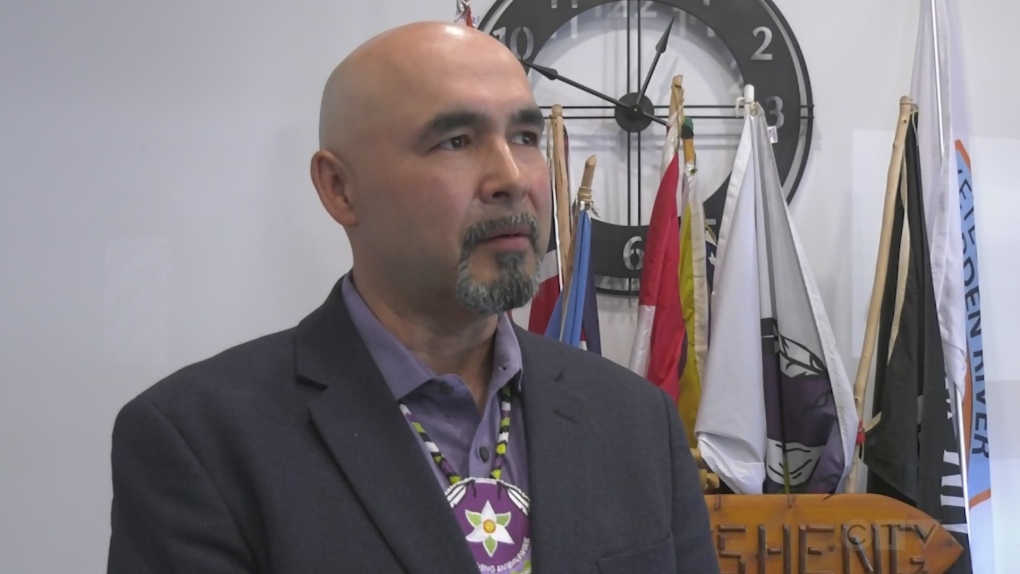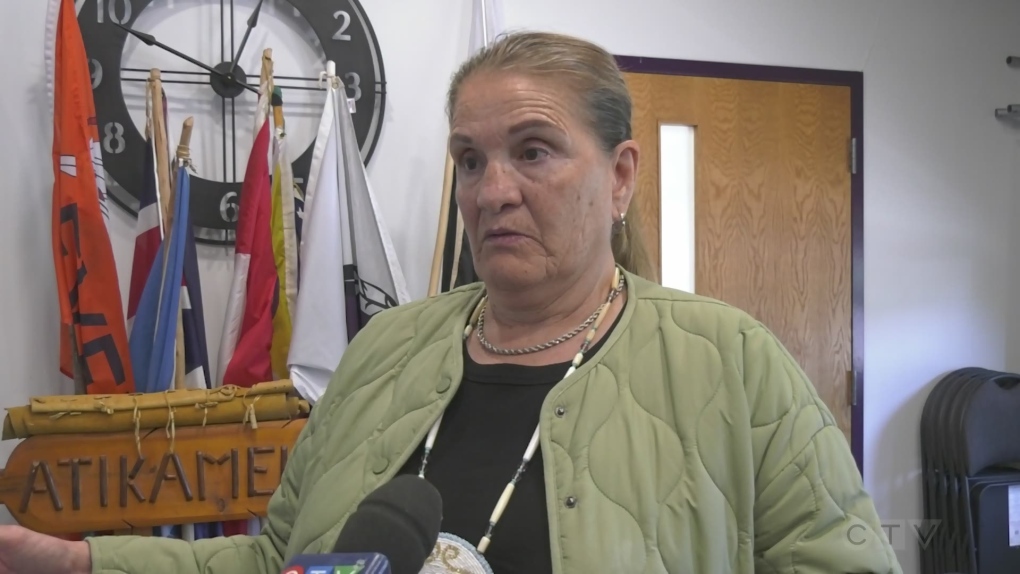Two northern Ont. First Nations challenging half billion dollars in legal fees
Two First Nations communities in northern Ontario will be challenging half a billion dollars in legal fees associated with the Robinson Huron Treaty Litigation Fund.
The chiefs of Atikameksheng Anishnawbek, near Sudbury, and Garden River First Nation, near Sault Ste. Marie, announced that they started a court application to examine if the $510 million charged in legal fees in the case are fair.
 Atikameksheng Anishnawbek Chief Craig Nootchtai is part of a court challenge looking into the $510 million in legal fees in the Robinson Huron Treaty case. June 10, 2024 (Amanda Hicks/CTV Northern Ontario)
Atikameksheng Anishnawbek Chief Craig Nootchtai is part of a court challenge looking into the $510 million in legal fees in the Robinson Huron Treaty case. June 10, 2024 (Amanda Hicks/CTV Northern Ontario)
"This is not in any way, you know, chastising the lawyers in any way," Atikameksheng Anishnawbek Chief Craig Nootchtai.
"We're very happy with the results of the settlement, but as a trustee, I still have a legal obligation to follow all the legal rules."
It was argued that the 21 Robinson Huron treaties have already paid millions of dollars in legal fees throughout the $10 billion settlement.
Garden River First Nation Chief Karen Bell said there was a lack of transparency.
"Why can't you tell us, like, how many lawyers that are in the firm working on this and what their hourly rates are and what work they've been doing to total the amount that you're asking," Bell said.
 Garden River First Nation Chief Karen Bell is challenging the Robinson Huron Treaty Litigation Fund for what she says is a lack of transparency in legal fees charged in the case. June 10, 2024 (Amanda Hicks/CTV Northern Ontario)
Garden River First Nation Chief Karen Bell is challenging the Robinson Huron Treaty Litigation Fund for what she says is a lack of transparency in legal fees charged in the case. June 10, 2024 (Amanda Hicks/CTV Northern Ontario)
Both leaders said the additional funds could go to support their communities.
"We realize that we could bring our people home. We could we could create prosperity for them," Bell said.
"We could assist them in going for driving, for driving forwards to independent businesses or to get higher education or, you know, better quality of life or better structural homes."
Nootchtai said they could use the extra money to create an education trust.
"I like to think it's enough … where we could put it into a trust and the money, the interest earned and that would grow every year," he said.
"We could use that interest earned to fund our students, right? And those that's the impact that's going to have on our nation."
This decision won't delay the distribution of the settlement funds set for August 2024, he said.
There are currently no firm court dates, but both First Nations are hoping for a quick resolution.
CTVNews.ca Top Stories

Trudeau considering his options as leader after Freeland quits cabinet, sources say
Chrystia Freeland, Canada's finance minister, said in an explosive letter published Monday morning that she will quit cabinet. Here's what happened on Monday, Dec. 16.
'We're not united': Liberal caucus meets, as PM Trudeau faces fresh calls to resign in light of Freeland's departure
The federal Liberals called an emergency caucus meeting Monday night, as Prime Minister Justin Trudeau faced renewed calls from some members of his party to resign. As MPs emerged, the message was mixed.
'Eventful day,' Trudeau says after Chrystia Freeland quits cabinet, LeBlanc tapped to replace her
In a stunning move, Deputy Prime Minister and Finance Minister Chrystia Freeland announced her resignation from Justin Trudeau's cabinet on Monday, after the prime minister told her he no longer wanted her in the top economic post. After hours of turmoil, Dominic LeBlanc, was sworn-in as her replacement in the finance portfolio.
Feds deliver fall economic statement with $61.9B deficit for 2023-24, amid political turmoil
Amid the news that Chrystia Freeland has resigned from her cabinet position as finance minister, the Department of Finance on Monday unveiled the long-anticipated fall economic statement, which reports a deficit of $61.9-billion for 2023-24.
W5 Investigates Connecting the dots on a landlord scam: how clues revealed a prolific con artist at work
In part one of a three-part investigation, W5 correspondent Jon Woodward reveals how a convicted con artist bilked dozens of people in a landlord scam.
Judge rules Trump does not have presidential immunity protections in hush money conviction
Donald Trump's felony conviction in the New York hush money case should not be tossed out because of the Supreme Court's ruling on presidential immunity.
Canadian hero Terry Fox being featured on next $5 bill
The federal government is paying tribute to Canadian hero Terry Fox by featuring him on the next $5 bank note, officials revealed Monday.
Wisconsin school shooter who killed teacher, student was 17-year-old girl, police say
A teenage student opened fire with a handgun Monday at a Christian school in Wisconsin, killing a teacher and another teenager during the final week before Christmas break. The shooter also died, police said.
Travel risk: Which countries does Canada recommend avoiding?
Canadians planning to travel abroad over the holidays should take precautionary steps to ensure they're not unintentionally putting themselves in harm's way.































